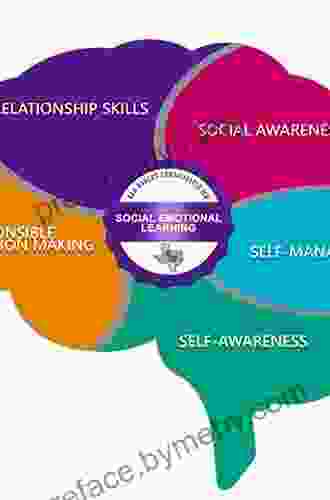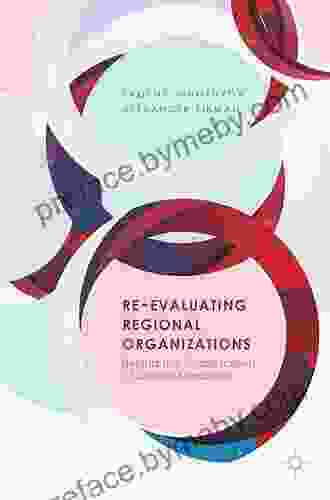Unlock the Power of Social Emotional Learning: A Guide to Nurturing Your Child's Brain Development

In today's rapidly evolving world, it is more important than ever to equip our children with the skills they need to navigate the challenges and complexities of life. Social emotional learning (SEL) is a crucial aspect of a child's development, enabling them to understand and manage their own emotions, build positive relationships, and make responsible decisions.
4.7 out of 5
| Language | : | English |
| Text-to-Speech | : | Enabled |
| Enhanced typesetting | : | Enabled |
| Word Wise | : | Enabled |
| File size | : | 868 KB |
| Screen Reader | : | Supported |
| Print length | : | 206 pages |
What is Social Emotional Learning?
Social emotional learning encompasses a wide range of skills, including:
- Self-awareness: Recognizing and understanding one's own emotions and strengths and weaknesses.
- Self-regulation: Managing one's emotions and behavior, such as staying calm when upset or resisting impulsivity.
- Social awareness: Understanding the perspectives of others and recognizing social cues and norms.
- Relationship skills: Building and maintaining healthy relationships, including communication, cooperation, and conflict resolution.
- Responsible decision-making: Making choices that consider both personal and social consequences.
The Importance of SEL for Brain Development
Research has shown that SEL skills are closely linked to brain development, particularly in areas responsible for:
- Emotional regulation: The amygdala and prefrontal cortex are involved in processing and controlling emotions.
- Social cognition: The temporal lobe and parietal lobe are involved in understanding social cues and perspectives.
- Decision-making: The prefrontal cortex is involved in weighing options and making choices.
When children engage in SEL activities, they strengthen these brain connections, leading to improved emotional stability, decision-making abilities, and social competence.
How to Foster SEL in Children
Parents and educators can play a significant role in fostering SEL in children by:
- Modeling positive SEL behaviors: Children learn by observing the adults in their lives. Demonstrate self-control, empathy, and respect in your interactions with them.
- Talking about feelings: Encourage children to express and discuss their emotions. Help them label their feelings and understand why they might be feeling them.
- Setting limits and teaching consequences: Children need clear boundaries and consequences for inappropriate behavior. This helps them learn self-regulation and responsibility.
- Providing opportunities for social interactions: Encourage children to participate in playgroups, sports, or other activities that involve interacting with peers.
- Using SEL resources: There are various books, websites, and programs designed to teach SEL skills. Incorporate these into your child's learning environment.
The Benefits of SEL for Children
Nurturing SEL in children has numerous benefits, including:
- Improved academic performance
- Enhanced emotional well-being
- Stronger social relationships
- Reduced risk of mental health issues
- Greater success in life
Social emotional learning is an essential foundation for a child's overall development and well-being. By understanding its importance and employing effective strategies, parents and educators can help children cultivate SEL skills that will empower them to thrive in both personal and professional life. Embrace the power of SEL and invest in your child's future by nurturing their emotional intelligence and social competence.
4.7 out of 5
| Language | : | English |
| Text-to-Speech | : | Enabled |
| Enhanced typesetting | : | Enabled |
| Word Wise | : | Enabled |
| File size | : | 868 KB |
| Screen Reader | : | Supported |
| Print length | : | 206 pages |
Do you want to contribute by writing guest posts on this blog?
Please contact us and send us a resume of previous articles that you have written.
 Book
Book Novel
Novel Page
Page Chapter
Chapter Text
Text Story
Story Genre
Genre Reader
Reader Library
Library Paperback
Paperback E-book
E-book Magazine
Magazine Newspaper
Newspaper Paragraph
Paragraph Sentence
Sentence Bookmark
Bookmark Shelf
Shelf Glossary
Glossary Bibliography
Bibliography Foreword
Foreword Preface
Preface Synopsis
Synopsis Annotation
Annotation Footnote
Footnote Manuscript
Manuscript Scroll
Scroll Codex
Codex Tome
Tome Bestseller
Bestseller Classics
Classics Library card
Library card Narrative
Narrative Biography
Biography Autobiography
Autobiography Memoir
Memoir Reference
Reference Encyclopedia
Encyclopedia Emily Martha Sorensen
Emily Martha Sorensen Steven Pustay
Steven Pustay John Snygg
John Snygg Lucinda Berry
Lucinda Berry Elizabeth Anne
Elizabeth Anne Laurie Silva
Laurie Silva Loan Le
Loan Le Rakesh V Vohra
Rakesh V Vohra Elizabeth Katkin
Elizabeth Katkin Eric Jones
Eric Jones Linda Anne Silvestri
Linda Anne Silvestri Michael J Maher
Michael J Maher Tim Pat Coogan
Tim Pat Coogan Elizabeth Shaw
Elizabeth Shaw Liz Scotta
Liz Scotta Jerry Bledsoe
Jerry Bledsoe Stephen Kirk
Stephen Kirk Eric Bodnar
Eric Bodnar Eileen Espen
Eileen Espen Sophie D Coe
Sophie D Coe
Light bulbAdvertise smarter! Our strategic ad space ensures maximum exposure. Reserve your spot today!

 Howard PowellElizabeth Taylor Nibbles and Me: A Memoir of Friendship, Food, and Hollywood...
Howard PowellElizabeth Taylor Nibbles and Me: A Memoir of Friendship, Food, and Hollywood... Dylan MitchellFollow ·6.4k
Dylan MitchellFollow ·6.4k Tennessee WilliamsFollow ·3.7k
Tennessee WilliamsFollow ·3.7k J.R.R. TolkienFollow ·14k
J.R.R. TolkienFollow ·14k William PowellFollow ·8.2k
William PowellFollow ·8.2k Greg FosterFollow ·9.9k
Greg FosterFollow ·9.9k Isaac BellFollow ·2.1k
Isaac BellFollow ·2.1k Dawson ReedFollow ·2.2k
Dawson ReedFollow ·2.2k Ken FollettFollow ·10.4k
Ken FollettFollow ·10.4k

 Richard Adams
Richard AdamsGame Development with Rust and WebAssembly: A...
Are you passionate...

 David Baldacci
David BaldacciGendered Identity and Aspiration on the Globalized Shop...
: The Convergence of Gender, Identity, and...

 Natsume Sōseki
Natsume SōsekiFresh Eyes On Panama: A Captivating Exploration of a...
Panama, a country often overshadowed by its...

 Adrian Ward
Adrian WardThe Life and Masterworks of J.M.W. Turner: A Timeless...
The Man Behind the Masterpieces ...
4.7 out of 5
| Language | : | English |
| Text-to-Speech | : | Enabled |
| Enhanced typesetting | : | Enabled |
| Word Wise | : | Enabled |
| File size | : | 868 KB |
| Screen Reader | : | Supported |
| Print length | : | 206 pages |














